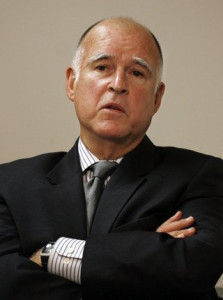 Co-sponsored by the California Society of Industrial Medicine and Surgery and the California Psychological Association, AB 1542 would restore neuropsychology as a separate Qualified Medical Examination (“QME”) category. Neuropsychologists are licensed clinical psychologists who receive additional post-graduate training specializing in the diagnosis, evaluation and treatment of traumatic brain injuries. This includes oxygen deprivation, tumors, chemical exposure, strokes, cerebral hemorrhage, and cumulative concussions.
Co-sponsored by the California Society of Industrial Medicine and Surgery and the California Psychological Association, AB 1542 would restore neuropsychology as a separate Qualified Medical Examination (“QME”) category. Neuropsychologists are licensed clinical psychologists who receive additional post-graduate training specializing in the diagnosis, evaluation and treatment of traumatic brain injuries. This includes oxygen deprivation, tumors, chemical exposure, strokes, cerebral hemorrhage, and cumulative concussions.
This bill requires the qualified medical evaluator in neuropsychology to hold a doctoral degree in psychology and have at least two years of specialized training, which is a more specified standard than required under current law. Furthermore, the American Board of Clinical Neuropsychology, the American Board of Professional Neuropsychology, or another organization that is recognized by the administrative director or a qualified medical evaluator in neuropsychology must certify the neuropsychologist. In addition, this bill would amend California Labor Code section 139.2 to add additional requirements for neuropsychology. Proponents of the bill recognize that denying injured workers access to neuropsychologists as QMEs complicates matters worse by requiring the psychologists serving as QMEs to contact a clinical neuropsychologist in order to adequately perform their duties. This results in unnecessary delay and costs for both injured workers and employers.
The only opposition the bill received was from the Department of Industrial Relations who claim that the Board of Psychology does not recognize “neuropsychology” as a separate specialty; therefore, the workers’ compensation system should not either. On October 6, 2015, Governor Jerry Brown vetoed the bill, agreeing with the opponents. He further stated that it would undermine the Division of Workers’ Compensation’s authority to apply consistent standards when it determines eligible medical specialties for the QME.
In the various athletic fields such as football, hockey, soccer, and boxing, concussions leading to traumatic brain injury are prevalent. Sports-related concussions are estimated at around 1.6 – 3.8 million occurring each year. In the last two years, there has been increasing concern from clinicians because trauma to the head can lead to severe and permanent brain damage. Neuropsychologists are at the forefront of scientific and clinical initiatives aimed at identifying the symptoms and problems associated with concussions, monitoring recovery, and facilitating return to sports. This is important for the athletes who are often given poor medical advice from the teams’ doctors, leaving them untreated and with permanent injury.
The bill had the potential to create better health care for the athletes. By vetoing the bill, the governor is denying those that suffer head trauma a diagnosis and the appropriate treatment from a qualified neuropsychologist.
